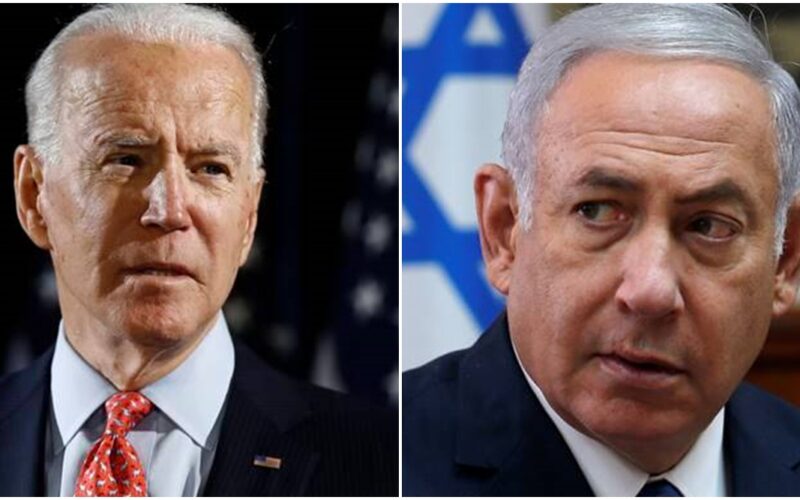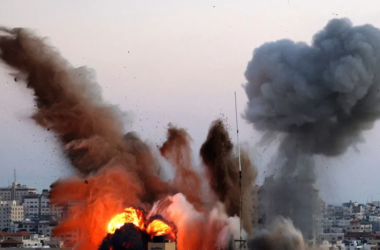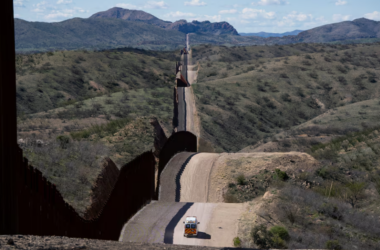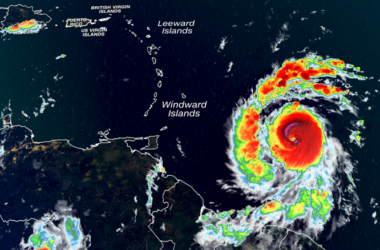Israel faces escalating pressure as the United States openly threatens to halt weapon supplies in case of an invasion of Rafah. President Joe Biden, in an interview with CNN aired Wednesday night, stated that the US would not provide weapons for a comprehensive invasion of the densely populated city in southern Gaza, home to hundreds of thousands of Palestinian refugees.
The US government had already withheld ammunition shipments due to Israel’s actions in Rafah. High-ranking Israeli officials expressed “deep frustration” over this move, warning that it could jeopardize indirect negotiations for a ceasefire and the release of hostages, according to two informed sources cited by the news portal “Axios.”
Meanwhile, the Israeli army continues its offensive against Hamas in the blockaded Gaza Strip. At present, Hamas positions in the central section of the coastal area are under attack, as announced by the Israeli military overnight on Thursday.
Israeli soldiers also advanced into parts of Rafah on the border with Egypt during the night on Tuesday. According to Israeli authorities, the army took control of the border crossing on the Palestinian side. “The US said they wanted us to limit the operation, to refrain from a large-scale invasion. And Israel did that and is still being punished,” cited the “Wall Street Journal” Michael Oren, former Israeli ambassador to Washington, overnight on Thursday.
According to the same source, Biden’s threat of halting weapon supplies in the event of an invasion of Rafah is a “preemptive strike” against any Israeli measures to expand its operations against Hamas in the city.
In recent days and weeks, the US had repeatedly warned Israel’s government against a large-scale ground offensive in Rafah – Biden referred to it as a “red line.” Israeli analysts cited by the “Wall Street Journal” suggest that the operation in Rafah aims to pressure Hamas into accepting an agreement that falls short of the organization’s demands. Among other things, Hamas continues to insist on the withdrawal of Israeli troops, which Israel staunchly opposes.
Meanwhile, William Burns, head of the US Central Intelligence Agency, reportedly returned to Cairo for mediation talks after discussing the status of ceasefire negotiations with Israeli Prime Minister Benjamin Netanyahu on Wednesday in Israel.
The negotiations, mediated by Egypt, Qatar, and the US, are set to continue in the Egyptian capital, as reported by the Arab television network Al Jazeera on Thursday morning. The objective of the talks is to secure the release of hostages held by Hamas in exchange for Palestinian prisoners in Israeli jails. Burns shuttles between various negotiation venues to achieve progress.
According to the “Wall Street Journal,” a former head of Israel’s National Security Council stated that the only way to continue negotiations at present is to continue attacking. “That’s our way of making them take it seriously.” In contrast, Hamas accused Israel of using negotiations as a pretext for an invasion of Rafah. Israel’s Prime Minister Netanyahu is attempting “to invent excuses to avoid negotiations and shift blame onto Hamas and the mediators,” said Izzat al-Rischk, a member of the Hamas Political Bureau, in a statement on Telegram.
According to Netanyahu, the operation in Rafah aims to free the remaining hostages and dismantle the last battalions of Hamas in the city. President Biden made it clear in the CNN interview that the Israeli military has not yet “advanced into population centers – what they have done is directly on the border.” He informed Netanyahu and his war cabinet that they could not expect US support “if they actually go into these population centers.” It would be “simply wrong” – and the US could not provide weapons and artillery for that. According to the United Nations, a total of 1.2 million people are currently in Rafah, more than half of Gaza’s entire population.
Germany has also repeatedly warned Israel against an invasion of the city due to the high number of civilians in Rafah. Meanwhile, analysts cited by the “Wall Street Journal” suggest that the Israeli army could attack different parts of the city in waves. The affected civilians should evacuate to safety beforehand. On Monday, Israel urged around 100,000 Palestinians to leave the eastern part of Rafah for security reasons. Residents were advised to move to the Mawasi area near the coast, where their supply of food, water, and medication could be ensured.
The Rafah border crossing remains closed. Together with Kerem Shalom, it is the main entry point for humanitarian aid into the southern Gaza Strip. Despite Israel’s announcement of the opening of Kerem Shalom, no aid had been delivered to Gaza as of Wednesday evening, according to United Nations spokesperson Stéphane Dujarric in New York. He did not provide detailed explanations regarding the delay in deliveries. Similarly, no aid has reached Gaza through the Rafah crossing, where fuel is urgently needed. Kerem Shalom had only just reopened on Wednesday after several days of closure. Israel had closed it on Sunday following a Hamas rocket attack that killed four Israeli soldiers, halting humanitarian transports.








